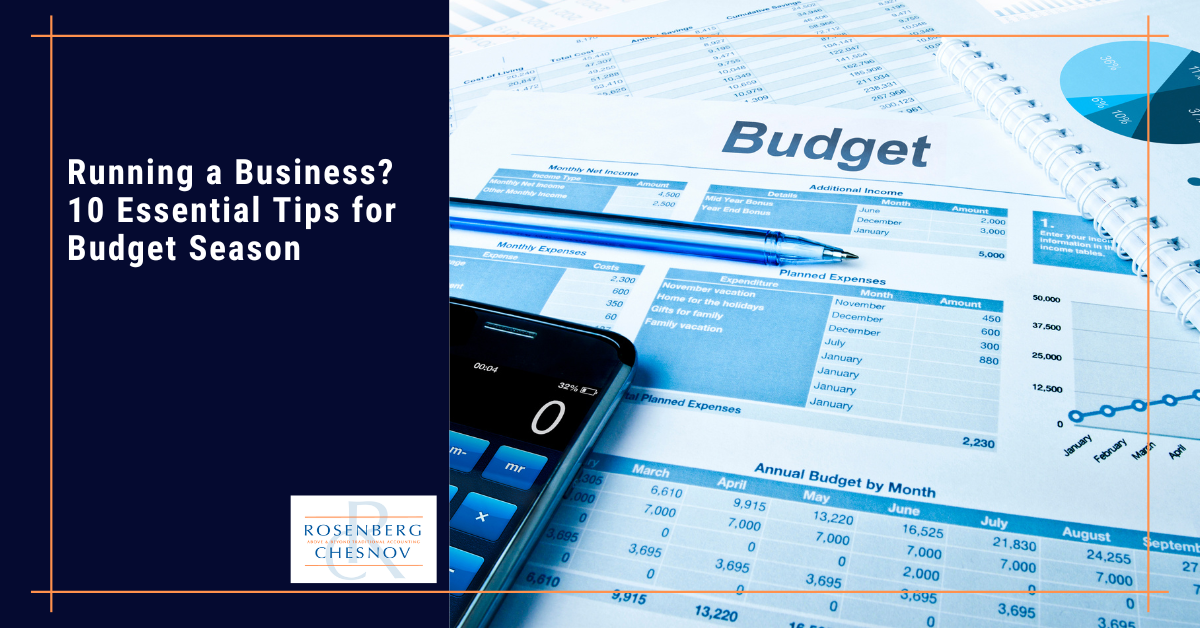

Understanding the FTC Safeguards Rule: A Business Owner’s Guide
Category: Accounting
Due diligence is a critical step in the investment/acquisition process. It is the process by which the investor gets to know the business they are investing in. So in this post, I go through what you need to do to get your company ready for due diligence.
It may seem that the burden of checking out an investment would fall mainly on the buyer or investor. However, assuming due diligence is a one-sided process can be a costly mistake.
Due diligence is also an opportunity for the seller to get to know the investor. Also, the quality of due diligence says a lot about the quality of the business. Therefore, the due diligence process itself impacts the negotiation. A better, smoother, more prepared due diligence strengthens your position significantly.
Furthermore, since it can take from weeks to years (in the case of large-scale acquisitions) to fully prepare a business for scrutiny, it’s never too early to get started.
So, is your company ready for due diligence?
In this post, you’ll discover how due diligence works, what it includes, and what key steps you can take now to be ready.


Acquiring or investing in a business is a serious matter.
As such, most investors will conduct a detailed examination of the target business’s legal, financial, and operating condition. This examination process is called “due diligence,” and it sheds light on the risks and rewards of the deal.
It can also expose liabilities, impact the valuation, or uncover deal-breaking factors in the worst-case scenario.
But, in a non-technical sense, due diligence is like dating.
This is where the investor and the business owner get to know each other before completing the deal. The investor wants to get to know you, and just like dating, how you present yourself is just as important as what you present.
Also, remember that this is your opportunity to get to know the investor. Especially for small, early-stage companies, this is very important – just like a marriage, you will be working closely with your investors for a long time. So, be sure there is a fit.
Due diligence can be time-consuming and stressful. Fortunately, proper preparation makes the whole process easier and inspires confidence in the value of your business.
Also, if you are well prepared, you can spend your time in the process looking into the investor rather than running around trying to cobble together reports. If you prepare continually, it doesn’t have to be painful and can be enlightening.
The exact scope and nature of due diligence will vary. However, any comprehensive investigation of your company is likely to include business and financial documentation and data, legal analyses, and personal interviews.
You should expect queries about your accounting practices, liabilities, shareholder dividends, and liquidity. A thorough process may also study your commercial viability. This could include researching your innovation, scalability, and unique selling proposition.
At a minimum, a clean set of books in QuickBooks (or other accounting software) is essential. You will also need copies of all legal agreements that you have ever entered into. Investors may also want to review strategies and any supporting commercial information. This will help them understand the opportunity that exists within your business.
Ultimately due diligence will be as detailed and broad as the investor deems appropriate. However, you can influence the type and qualify of due diligence. The information that the investor needs is the same information you need to run your business. Often, if you are prepared, you will be able to steer the process toward the available information.
Due diligence breaks down into three basic phases: preparation, investigation, and results.
During preparation, the buyer or investor will establish goals, priorities, and areas of focus for the process. On the company side, you should make sure that you have all of your documents well organized and ready for the inquiry. You can influence the preparation stage by engaging with the investor and educating them on how your business works.
During the investigation, you can expect to receive requests for information and documentation. This will involve the exchange of documents and, likely, face-to-face conversations. In this phase, you want to be as open and responsive as you can be.
Finally, in the third phase of the process, an analysis of findings and results will inform a final decision about the potential deal.
This can be a lengthy process. Often, though, when due diligence drags on, it is because the seller is slow in providing information. That means it is within your power to facilitate a faster, more efficient due diligence. This comes down to preparation.
Preparing for due diligence means keeping everything a buyer or investor might want to see accurate, up-to-date, and organized.
Managing your side of the process is critically important, so here are some tips to get you started.
Put yourself in the buyer or investor’s position. If you were examining a company like yours, what would you want to know? Some investors will provide you with a due diligence checklist, but it’s a good idea to start creating your own in advance and use it to organize your books and your records.
Make sure your checklist includes these categories:
This is a tricky one: you want to be as open as possible, but you also have to protect yourself in case the deal doesn’t go through. Again, this is like dating – as you go through the process, you will be more open.
It may seem counter-intuitive, but there will be some sensitive information you should not share. This could include, for example, personal customer data, intellectual property, or unpublished patent applications.
Due diligence is all about transparency. Still, sharing certain information could violate data protection laws, NDAs, or regulations, breach a contract, or reveal confidential information to competitors. Be attentive to any details you may need to anonymize or entirely withhold.
Furthermore, you should ask all parties involved in the due diligence to sign Non-Disclosure Agreements or NDAs, as well. This will not only help protect your sensitive information—it will also demonstrate to future buyers or investors that the information is secure.
Early-stage investors, especially angel investors, likely won’t sign an NDA. This is not because they will reveal your information but rather because they see so many companies and engage in so many transactions that tracking these agreements would be impossible.
You will need to balance the investor’s need for information with your need for confidentiality and any legal constraints you must respect. There are no hard and fast rules here, so you will have to feel your way through.
Before your company goes under the microscope, you should get it in the best possible shape.
That means addressing liabilities and exposures. Ongoing or potential lawsuits, disputes, or threats of litigation will be major red flags during due diligence. So you should try to resolve them before a buyer or investor even shows interest.
There may be litigation exposures that you aren’t even aware of but which would surface during due diligence. Review any possible disputes related to:
Finally, if you cannot resolve an exposure or liability, be honest and open about it. Communicate the issue, and demonstrate the mitigation measures you are taking.
The reddest of red flags is a meaningful exposure or liability that you never disclosed. The second reddest is an obvious issue that you ignore. Hiding or just neglecting an issue can be a sign of incompetence that is much worse than a liability.
Remember, facilitating a smooth process is in your best interest. Organization is key to this objective.
It is a good idea to set up a virtual data room, or “deal room.” This is an online space that allows you to present information in a controlled way. A good virtual data room should include folder and sub-folder organization, with tables of contents and overview documents. Be consistent with naming and numbering. Use hyperlinks to make accessing related documents easy, and keep everything up-to-date.
Organization and clarity are key here: your data room can be a well-organized Google Drive or a folder on DropBox. It doesn’t have to be fancy, but it does have to be easy to work with.
In the process of due diligence, stay on top of all communications, and respond promptly to any requests for additional information. By being organized, professional, and courteous, you will show your company to be credible, capable, and valuable.
Getting ready for due diligence is time-consuming and complex. Beginning to do so only upon attracting interest from a buyer or investor will not give you adequate time. What’s more, being unprepared will reflect poorly on your company and is likely to impact the success or failure of the deal.
So no matter where you are in your company’s growth, there will not be a better time than now to review your readiness.
It’s never too early to prepare for due diligence.
If you are a client and would like to book a consultation, call us at +1 (212) 382-3939 or contact us here to set up a time.
If you aren’t a client, why not? We can take care of your accounting, bookkeeping, tax, and CFO needs so that you don’t have to worry about any of them. Interested? Contact us here to set up a no-obligation consultation.
Interested in receiving updates in your mailbox? Check out our newsletter, full of information you can use. It comes out once every two weeks and you can register for it below.


Category: Accounting


Category: Management


Category: Management
Send us a message and we will contact you as soon as possible.
Jeff Coyle, CPA, Partner of Rosenberg Chesnov, has been with the firm since 2015. He joined the firm after 20 years of business and accounting experience where he learned the value of accurate reporting, using financial information as a basis for good business decisions and the importance of accounting for management.
He is a diligent financial professional, able to manage the details and turn them into relevant business leading information. He has a strong financial background in construction, technology, consulting services and risk management. He also knows what it takes to create organizations having built teams, grown companies and designed processes for financial analysis and reporting.
His business experience includes:
Creating and preparing financial reporting, budgeting and forecasting.
Planning and preparation of GAAP and other basis financial statements.
Providing insight on financial results and providing advice based on those results.
Jeff also has a long history of helping individuals manage their taxes and plan their finances including:
Income tax planning and strategy.
Filing quarterly and annual taxes.
Audit support.
General financial and planning advice.
Prior to joining the firm in 2015, Jeff was in the private sector where he held senior financial and management positions including Controller and Chief Financial Officer. He has experience across industries, including construction, technology and professional services which gives him a deep understanding of business.
Jeff graduated from Montclair State University, he is a CPA and member of the American Institute of Certified Public Accountants, New York State Society of Certified Public Accountants and New Jersey State Society of Public Accountants.
Jody H. Chesnov, CPA, Managing Partner of Rosenberg Chesnov, has been with the firm since 2004. After a career of public accounting and general management, Jody knows the value of good financials. Clarity, decision making, and strategy all start with the facts – Jody has been revealing the facts and turning them into good business results for more than three decades.
He takes a pragmatic approach to accounting, finance and business. His work has supported many companies on their path to growth, including helping them find investors, manage scaling and overcome hurdles. His experience and passion for business reach beyond accounting and he helps businesses focus on what the numbers mean organizationally, operationally and financially.
He has a particular expertise in early-stage growth companies. His strengths lie in cutting through the noise to come up with useful, out of the box, solutions that support clients in building their businesses and realizing their larger visions.
Prior to joining the firm in 2004, Jody was in the private sector where he held senior financial and management positions including General Manager, Chief Financial Officer and Controller. He has experience across industries, which gives him a deep understanding of business.
Jody graduated with a BBA in Accounting from Baruch College, he is a CPA and member of the American Institute of Certified Public Accountants and New York State Society of Certified Public Accountants.
In addition to delivering above and beyond accounting results, Jody is a member of the NYSCPA’s Emerging Tech Entrepreneurial Committee (ETEC), Private Equity and Venture Capital Committee and Family Office Committee.
He is an angel investor through the Westchester Angels, and has served as an advisor for many startup companies and as a mentor through the Founders Institute.